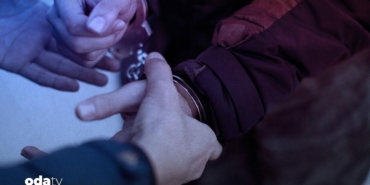Car donation in Los Angeles offers a meaningful way to give back to the community while providing potential tax benefits to the donor. With a vast array of nonprofit organizations ready to accept vehicle donations, understanding the process and its implications can help you make informed decisions. This guide will explore the benefits, the donation process, and essential considerations for donating your car in Los Angeles.
1. Benefits of Donating Your Car
Donating your car in Los Angeles comes with several advantages that extend beyond merely getting rid of an unwanted vehicle.
1.1 Charitable Contribution
By donating your car, you’re supporting local charities and community programs. Many organizations rely on vehicle donations to fund their initiatives, helping those in need and contributing to various social causes.
1.2 Tax Deductions
Car donations can lead to substantial tax benefits. Depending on how the charity utilizes your vehicle, you may be eligible to deduct the fair market value or the sale price of the car from your taxes. This can provide significant savings during tax season.
1.3 Environmental Benefits
Donating your vehicle can also have positive environmental impacts. Many charities recycle or repurpose vehicles in an eco-friendly manner, reducing waste and promoting sustainability in the community.
2. The Car Donation Process
The car donation process in Los Angeles is straightforward, allowing donors to navigate it easily.
2.1 Choose a Reputable Charity
Start by researching charities that accept car donations in Los Angeles. Look for organizations that align with your values and have a positive reputation. Websites like Charity Navigator can help evaluate their credibility and transparency.
2.2 Prepare Your Vehicle and Documentation
Before donating, ensure you have all necessary documents, including the vehicle title and maintenance records. You’ll need to sign the title over to the charity, so ensure all paperwork is ready to streamline the process.
2.3 Schedule Pickup
Most charitable organizations offer free vehicle pickup services in Los Angeles. Contact your chosen charity to arrange a convenient pickup time. Be clear about the vehicle’s condition and any specific instructions for the pickup.
3. What Happens After You Donate
Understanding the next steps after your car donation can help manage expectations.
3.1 Vehicle Assessment and Use
Once your car is picked up, the charity will assess its condition. Depending on the vehicle’s state, they may sell it at auction, keep it for their operations, or refurbish it for resale.
3.2 Tax Documentation
After the donation, you will receive a tax receipt from the charity. This document is essential for claiming your tax deduction, so keep it safe. The receipt will specify how the charity intends to use the vehicle.
3.3 Follow-Up and Impact Reporting
Many organizations provide updates on how your donation has made a difference in the community. This can enhance your sense of fulfillment by showing the tangible results of your contribution.
4. Considerations for Donating Your Car
While car donation is beneficial, there are important factors to consider to ensure a smooth experience.
4.1 Understand Tax Implications
Be aware of IRS regulations regarding car donations. The deduction you can claim often depends on how the charity uses the vehicle after donation. Consulting a tax professional can clarify any uncertainties about your specific situation.
4.2 Research the Charity’s Impact
Investigate how the organization allocates funds from vehicle donations. Transparency about the use of proceeds is crucial in ensuring your contribution is used effectively.
4.3 Vehicle Condition and Donation Guidelines
Consider the condition of your vehicle before donating. While many charities accept non-running cars, it’s essential to communicate this clearly to avoid any misunderstandings.
4.4 Vehicle Registration and Transfer
After the donation, complete a Notice of Transfer and Release of Liability (REG 138) with the California DMV. This step is crucial to protect yourself from future liabilities associated with the vehicle.
In summary, car donation in Los Angeles is a rewarding way to support local charities while potentially gaining tax benefits. By understanding the process, choosing a reputable organization, and being aware of the necessary conditions, you can make a positive impact in your community and contribute to causes you care about. Whether your vehicle is in working condition or not, there are plenty of opportunities to donate and help those in need.
Who Can Participate?
- Individual Donors:
- Private Vehicle Owners: Any individual who owns a vehicle can donate it, as long as they have legal ownership and the title.
- Business Owners: Businesses can also participate by donating vehicles used for business purposes, such as company cars or service vehicles.
- Nonprofit Organizations:
- Registered Charities: Only registered 501(c)(3) nonprofit organizations can accept car donations. These organizations must comply with IRS regulations, allowing donors to claim tax deductions.
Conditions for Participation
- Ownership Requirements:
- Legal Title: Donors must be the legal owners of the vehicle and have the title in their name. If the vehicle is financed or leased, prior permission from the lender or leasing company may be necessary.
- Vehicle Condition:
- Acceptable Conditions: Many charities accept both running and non-running vehicles. However, it’s important to check with the specific organization to confirm their policy on vehicle conditions.
- Documentation:
- Title Transfer: Donors must complete the necessary paperwork, including signing the vehicle title over to the charity.
- Release of Liability: Completing a Notice of Transfer and Release of Liability form (REG 138) is crucial to inform the DMV of the change in ownership and protect the donor from future liabilities.
- Charitable Organization:
- 501(c)(3) Status: Ensure that the charity you choose is a registered 501(c)(3) organization, allowing you to claim a tax deduction for your donation.
- Transparency: Donors should research the charity to understand how proceeds from car donations are used and ensure the organization is reputable.
- Tax Considerations:
- Fair Market Value: Donors should be aware that the tax deduction will be based on the fair market value of the vehicle or the sale price if the charity sells it.
- Tax Receipt: After the donation, donors will receive a tax receipt from the charity, which is essential for claiming the deduction.
Additional Considerations
- Pickup Services: Most charities offer free vehicle pickup services, so it’s important to confirm the details and requirements regarding pickup.
- Geographic Restrictions: Some charities may have specific geographic limitations regarding vehicle donations and pickup services in the Los Angeles area.
- Communication: Clear communication with the charity regarding the vehicle’s condition, any existing liens, and the timeline for the donation process is essential.
By meeting these conditions, individuals and organizations can successfully participate in car donation programs in Los Angeles, contributing to charitable causes while potentially benefiting from tax deductions.













